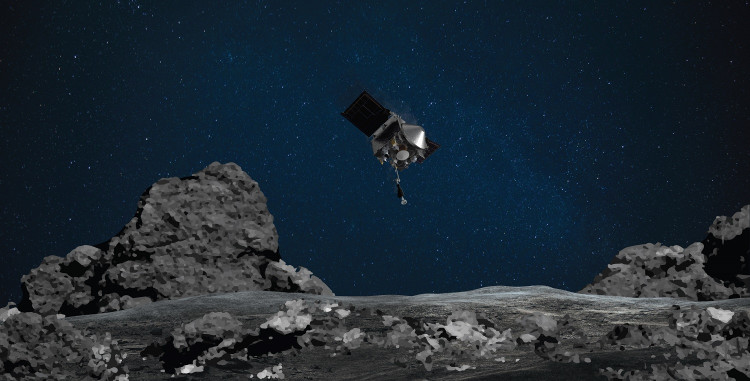The Apophis asteroid will pass remarkably close to Earth on April 13, 2029, within 31,000 kilometers of Earth's atmosphere, or closer to Earth's satellites in geostationary orbit. Shortly after its discovery in late 2004, astronomers predicted a 1-in-37 chance of collision at one point in 2029, but subsequent observations quickly ruled out any impact.
A minor chance of impact in 2036 lasted for a few years, particularly if the asteroid went through a narrow "keyhole" of space near Earth during its 2029 journey, but that has since been ruled out. With the near-term possibility of impact removed, Apophis moved from a threat to opportunity.
Now the scientists behind NASA's OSIRIS-Rex asteroid sample-return mission are considering sending a spacecraft to study the infamous Apophis.
If the appointment arrives, the spacecraft will arrive at Apophis in April 2029, just over a week after the asteroid begins a chilling approach to Earth, about 19,800 miles from the surface of our planet. Scientists are certain that the asteroid will not impact Earth, but Apophis already has quite the reputation for a space rock, and finding out OSIRIS-REx has the ability to visit it offered an unlikely chance for the mission.
OSIRIS-Rex collected its space rock samples on Oct. 20, 2020, and will depart Bennu for a long journey home sometime this spring, arriving in September 2023. The OSIRIS-Rex team aims to suggest an extended mission to NASA during the summer of 2022.
Visiting Apophis is one possibility for what the extended mission could look like, but so far, it's the only aim that engineers have considered the spacecraft to be able to visit long term.
OSIRIS-Rex going to visit a second asteroid could also help provide answers the greatest mystery the spacecraft found in Bennu: the streams of particles shooting out of the rock into space. The ejections may depend on the water-rich composition of Bennu or may be a more common feature. As an asteroid with a similar size and composition but with a very different stony material, Apophis may be able to resolve the question.
And then there's the ungraspable consistency that Apophis has, since its discovery in 2004, when scientists' estimation of its orbit was so unclear that, in some scenarios, its 2029 flyby went very, very badly indeed, with the asteroid crashing into Earth. Additional studies cleared up the subject, but it is a tough reputation to break for an asteroid named after the mythological Egyptian serpent of chaos.
Right now, there is no certainty of the extended mission of OSIRIS-Rex to Apophis. The plan is reportedly awaiting approval by NASA.






